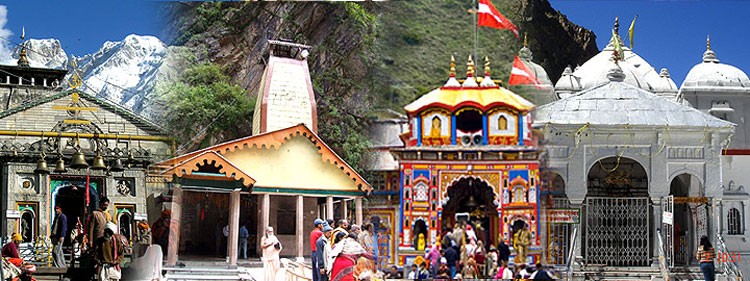In a landmark decision, the Uttarakhand cabinet on Wednesday approved a proposal for the management of Char Dham Yatra, consisting of the four holy Hindu abodes- Yamunotri, Gangotri, Kedarnath and Badrinath, as well as 51 other temples on the lines of other important temples of the country such as Vaishno Devi temple in Jammu & Kashmir and Tirupati Balaji in Andhra Pradesh.
The Uttarakhand government is planning to enact the Chardham Shrine Management Board Act, 2019 to oversee the management of the four holy Hindu shrines which together form the Char Dham Yatra. Currently, all major temples in the hill state, including Badrinath and Kedarnath, are governed by individual committees which consist of government representatives. The management of Badrinath and Kedarnath is overseen by the Kedarnath-Badrinath temple committee.
Madan Kaushik, State Urban Development Minister and spokesperson for the state government said that the attempt is to introduce an overarching law to oversee the functioning of Hindu places of worship in the state. According to him, “In the initial phase, the board will manage Char Dham and 51 temples. A bill regarding this will be tabled in the State Assembly in the upcoming session. Once the Act is formed, the board will work on the lines of Vaishno Devi and Tirupati Balaji Shrine Management Boards.” He also said, “Once formed, CM of the state would head the board as its chairperson. Three MPs, six MLAs, several secretaries and priests of the char dhams will also be included as members in the board.” The main highlight of the proposed enactment is that in case a Muslim becomes the Chief Minister of the state, a Hindu cabinet minister would be the Chairperson of the shrine board. Kaushik said “In case there is a Muslim CM then a senior Hindu cabinet minister would be the chairperson of the board.”
The Chief Executive Officer of the shrine board would be an Indian Administrative Service (IAS) officer who would look after the rights that priests have enjoyed previously. According to the State Urban Development Minister, the Uttarakhand government is looking to improve facilities at all major temples in the state which would give a boost to religious tourism. The Uttakhand government seems to have realised the immense potential of the state in this sector given that the state boasts of some of the oldest and most important Hindu shrines.
The Uttarakhand government has therefore set a very good example with its provision about ensuring that the Chairperson of the shrine Board is always a Hindu. Even though the CM is the de facto Chairman, a Muslim CM would not be made the Chairperson, rather a Hindu cabinet minister would have to be appointed as the Chairperson. This is a wise and balanced decision keeping the sentiments of Hindu devotees in mind and their rights at getting their shrines administered by a person from their own religion. This is in sharp contrast to the kind of State interference that has traditionally been a characteristic of the management of the Hindu temples. While the Churches, Mosques and Madrassas have been given a free hand, the State has been adamant on compelling Hindu temples to become the harbinger of a concocted version of secularism allowing undue interference in their management. Trivendra Singh Rawat government has shown the way ahead with this proposed legislation that contains a provision to prevent the management of Hindu shrines from going outside the control of Hindu community. This sets an example for other states when it comes to management of Hindu temples.
